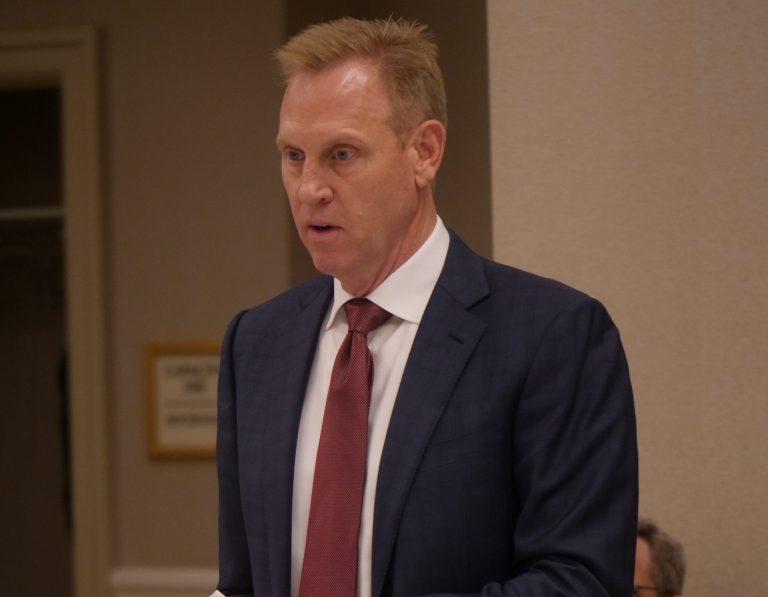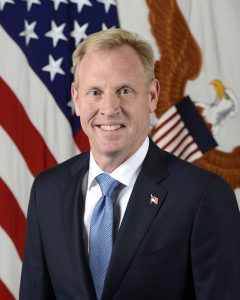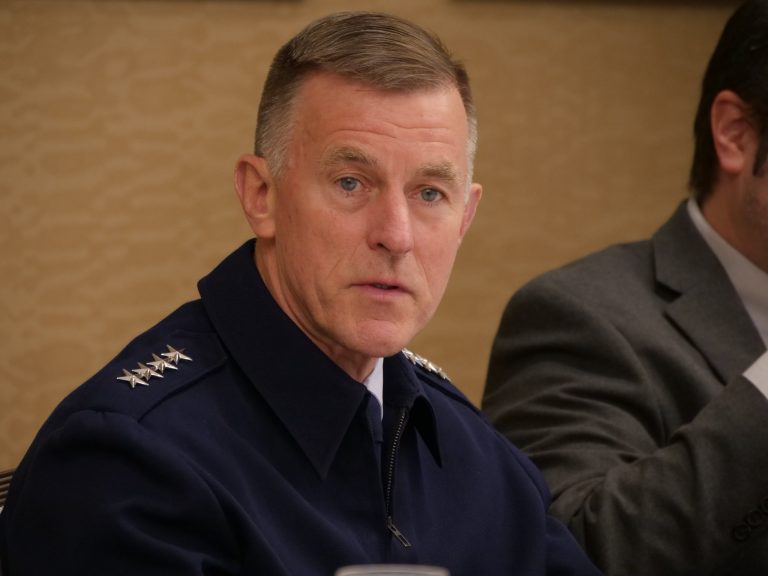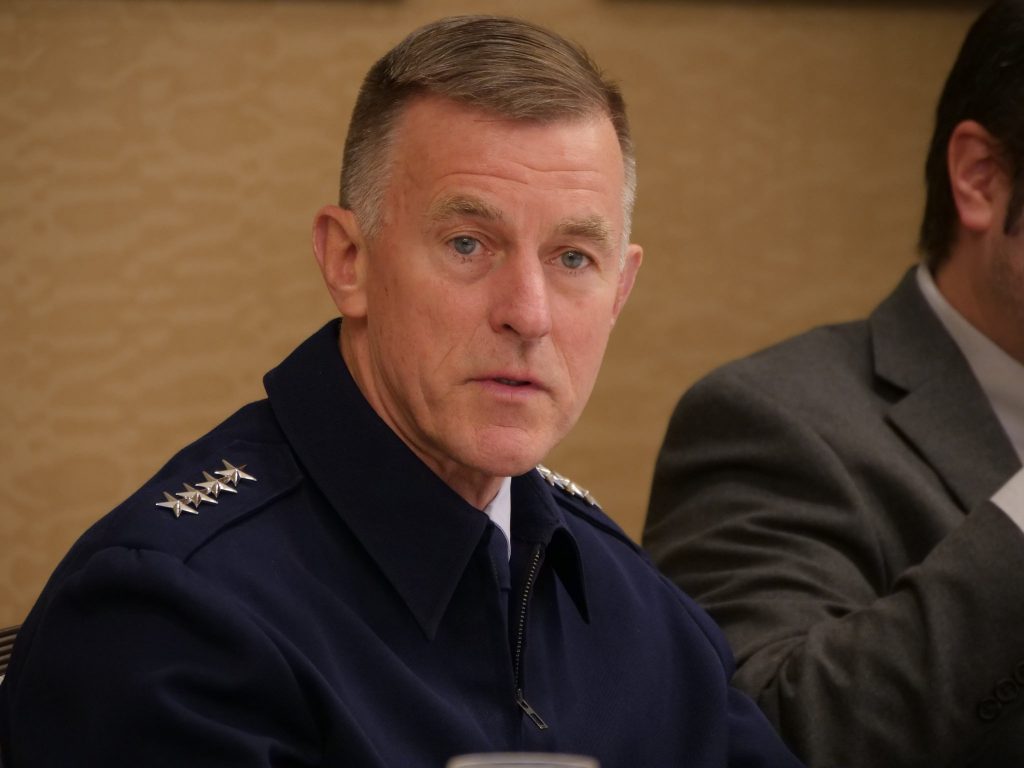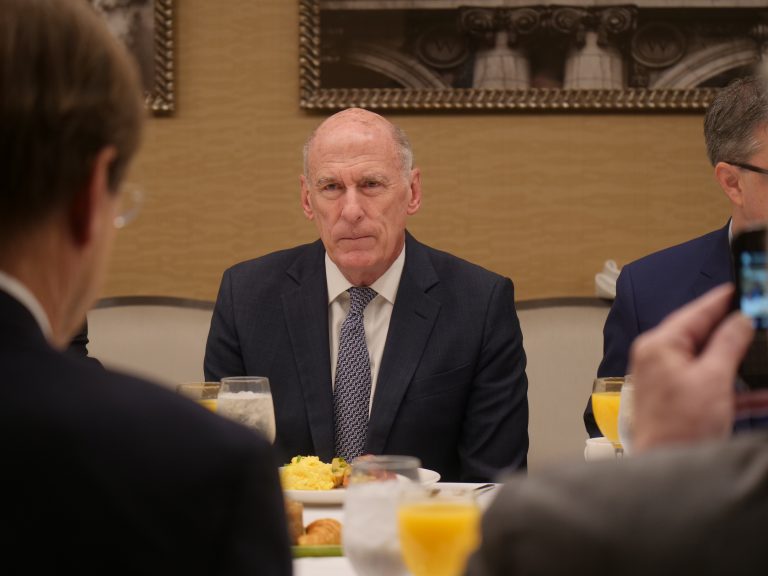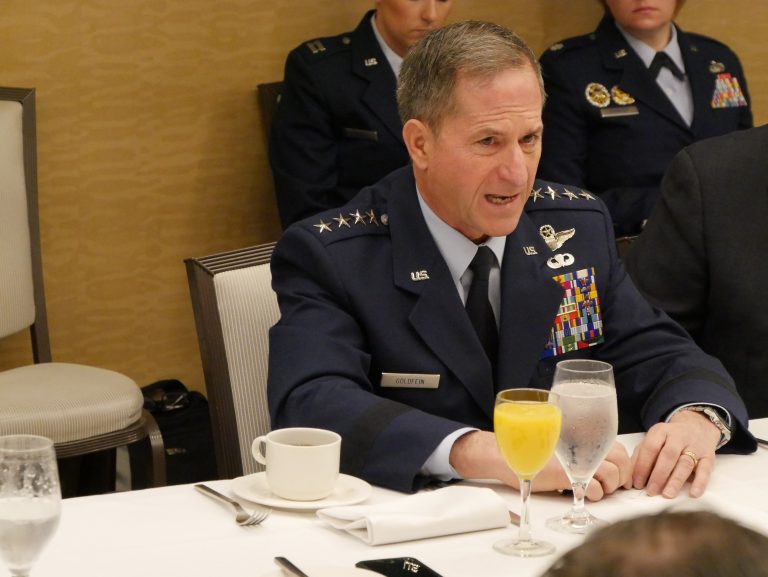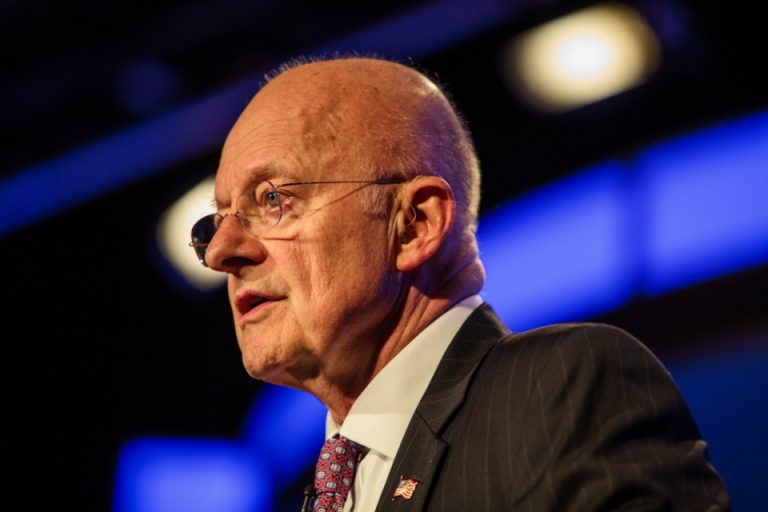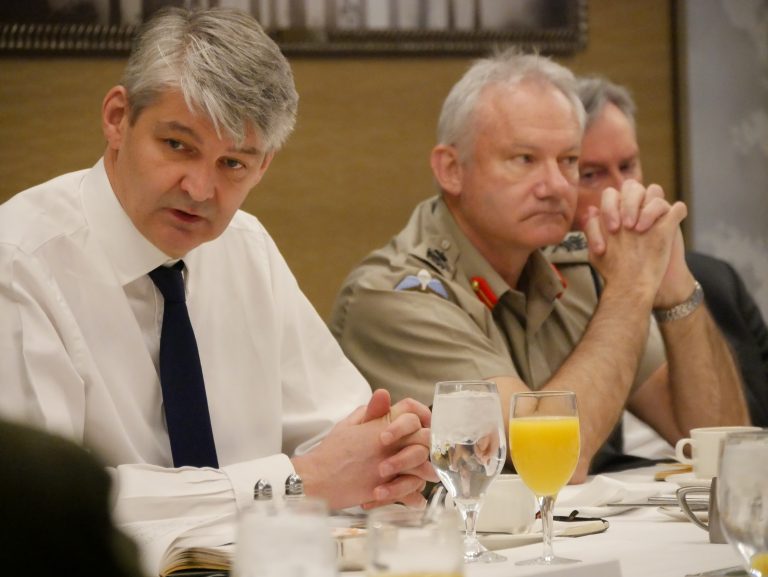Deputy Defense Secretary Patrick Shanahan told reporters there will be room for multiple companies to help build the cloud which will store the Pentagon's massive computer data and that the current contract for a provider only covers about 20% of what will be needed.
"This is our pathfinder" Shanahan said, but many more contracts will be sought, and contractors will be expected to find ways to integrate their systems. This is good news for industry, which has protested for months about the way the Pentagon plans to award its Joint Enterprise Defense Infrastructure Cloud Program (JEDI).
"The business model for cloud operators is going to evolve. The interoperability of the systems is going to evolve. All the things people say won't happen early on, I can tell you it will happen," he said.
Shanahan spoke at an April 24th breakfast meeting with reporters hosted by the Defense Writers Group, which is part of the George Washington University Project for Media and National Security in GW's School of Media and Public Affairs.
The Pentagon, he said, is not planning for another significant funding boost in fiscal year 2020 and is exploring ways to make budgetary "headroom" to support modernization investments in weaponry and military forces, being drawn up by a new innovation team.
The wide-ranging conversation prompted articles on topics ranging from the threat of Russian and Chinese hypersonic weapons, to problems keeping down costs of the F-35 fighter jet.
Air Force Magazine: Space Corp Assessment by June 1, Shanahan Says
C4ISRNET: JEDI cloud contract ‘fair and open’ competition, Shanahan says
Defense News: Pentagon AI center progressing, but hypersonics and lasers may not get same treatment
DoD News: DoD Seeks to Make Civilian Agencies More Productive, Efficient
Federal News Radio: DoD’s JEDI is a ‘pathfinder’ for future DoD cloud computing contracts
Inside Defense: Pentagon seeking 'headroom' for FY-20 modernization strategy
Inside Defense: Senate clears Nakasone to run CYBERCOM, NSA
Jane’s: Pentagon plans to consolidate hypersonic efforts as part of ‘road map’
Next Gov: JEDI Will Be Just One of Many Clouds, Says Pentagon’s No. 2
TASS: US defense official comments on relations with Russia

